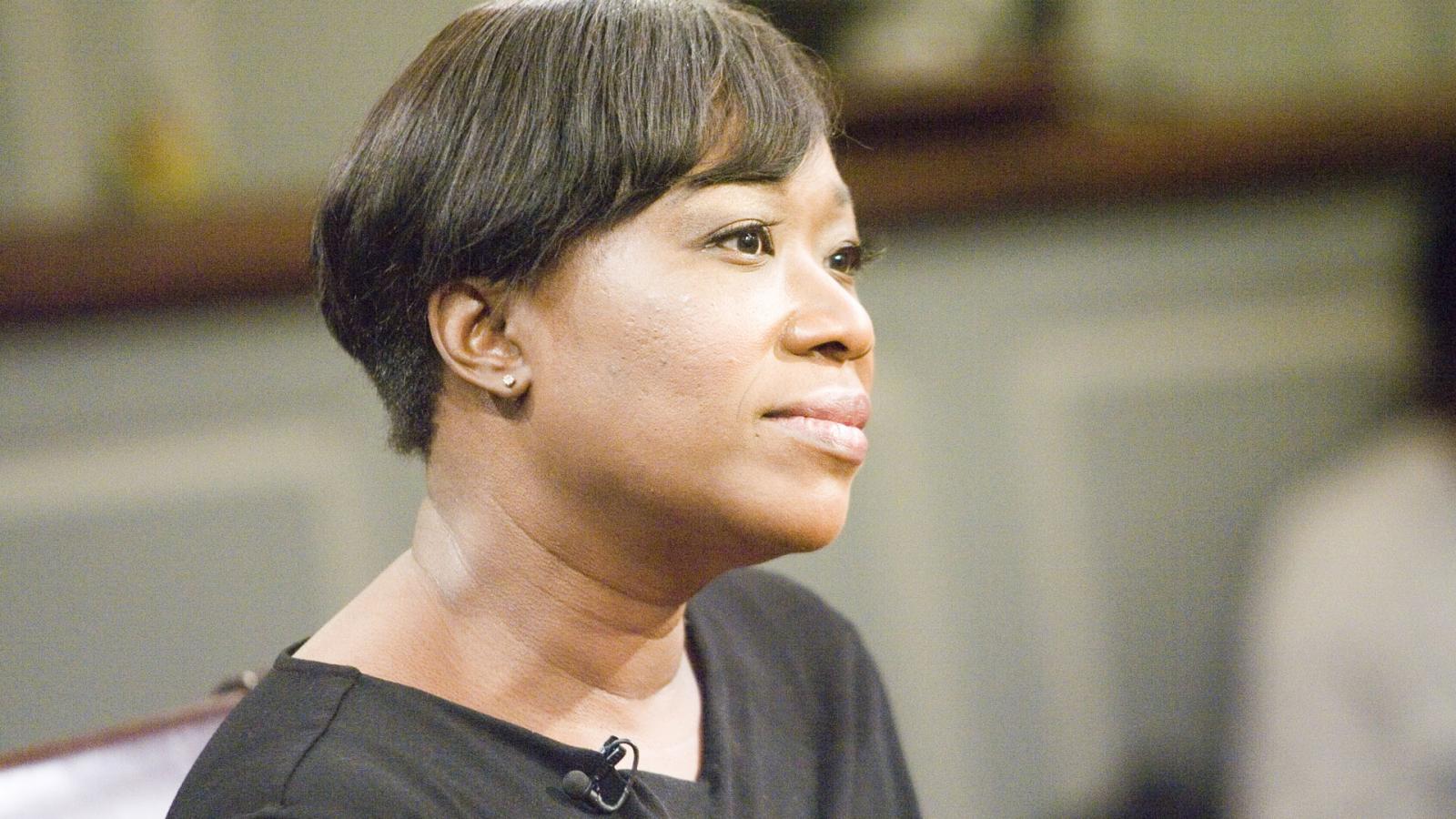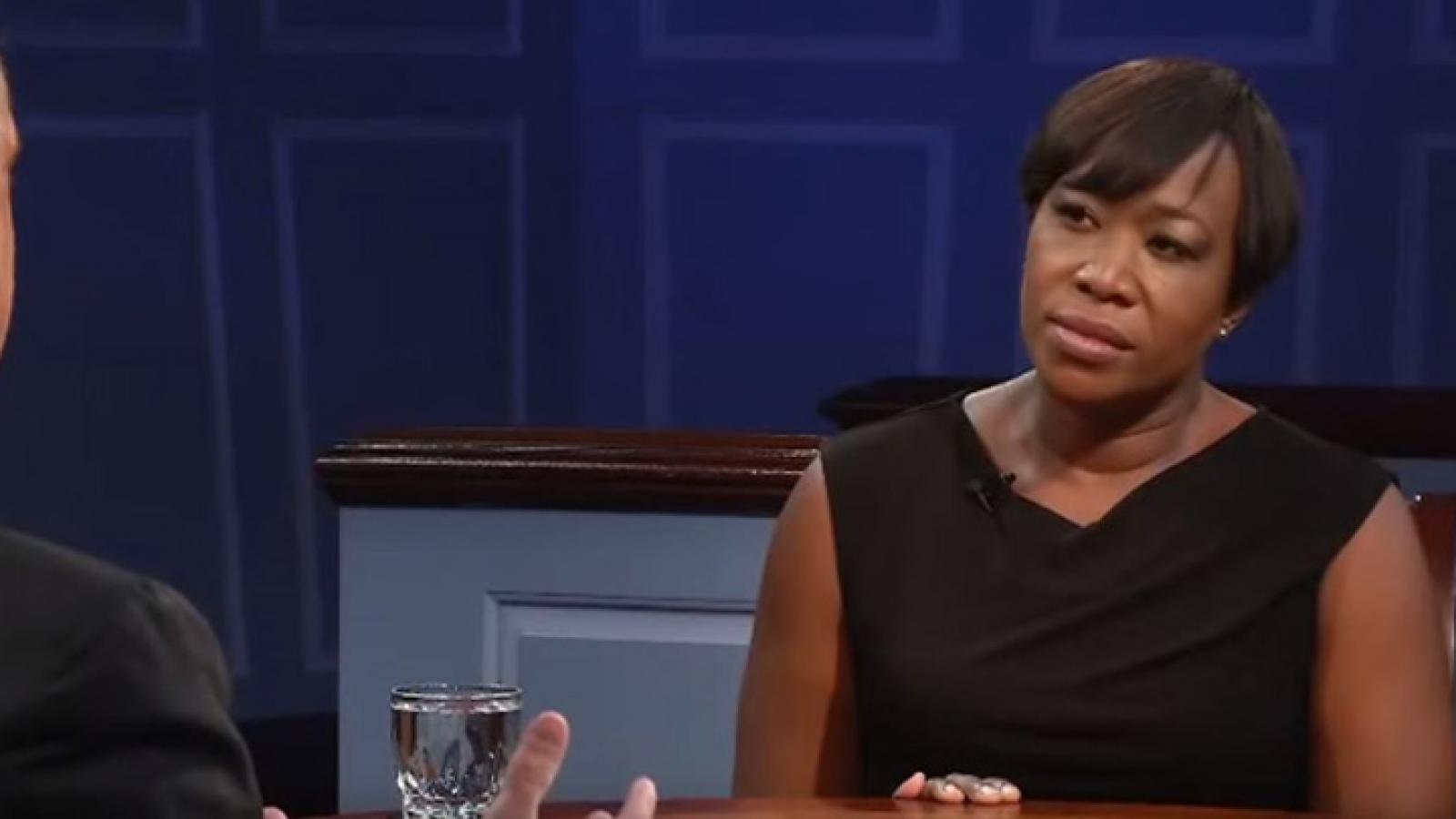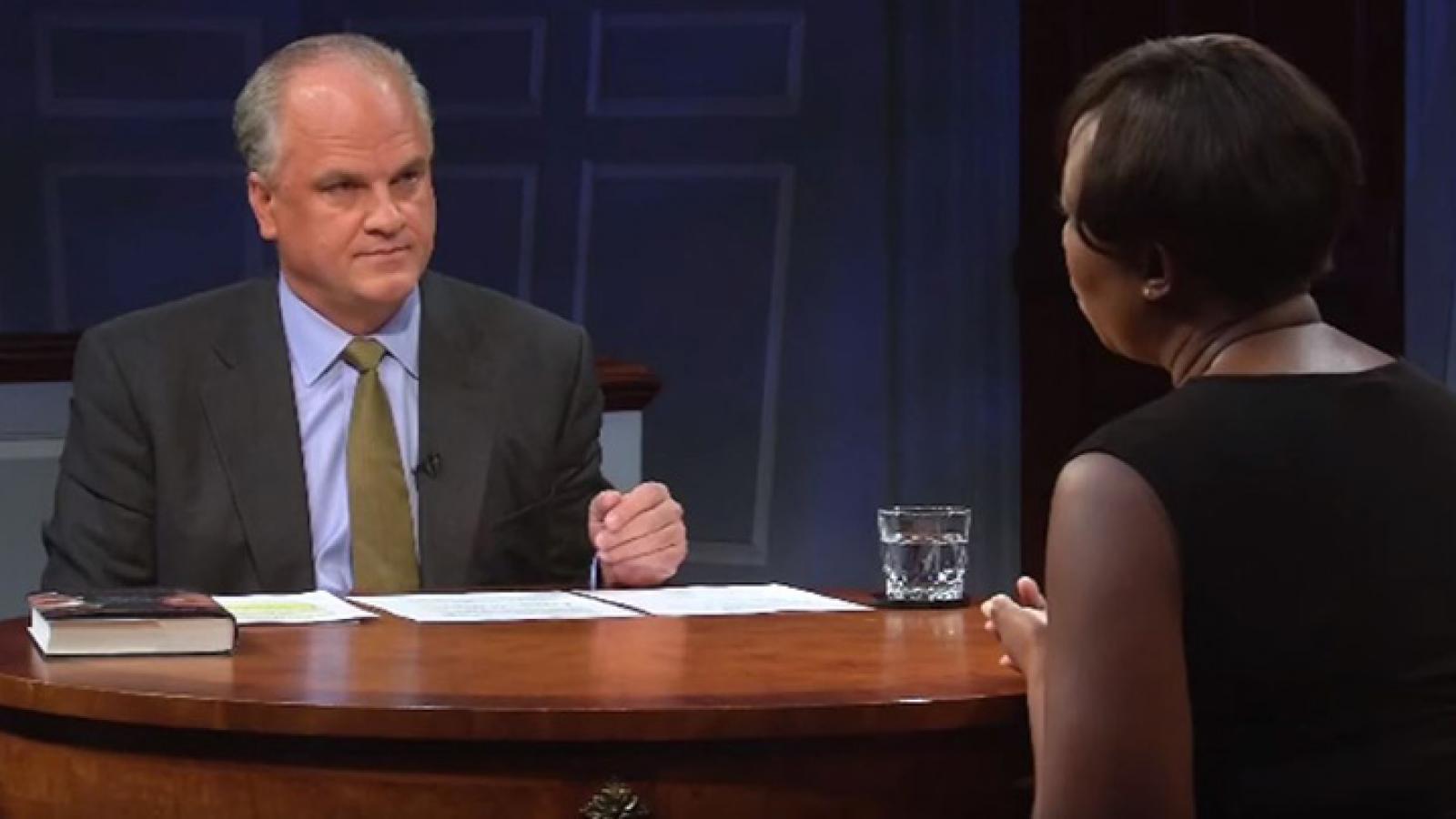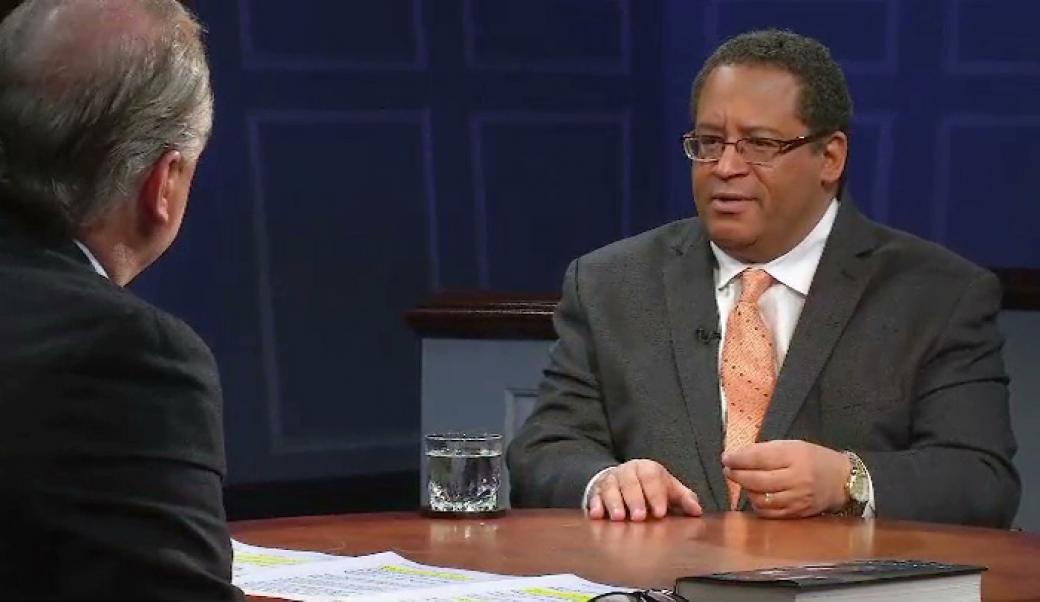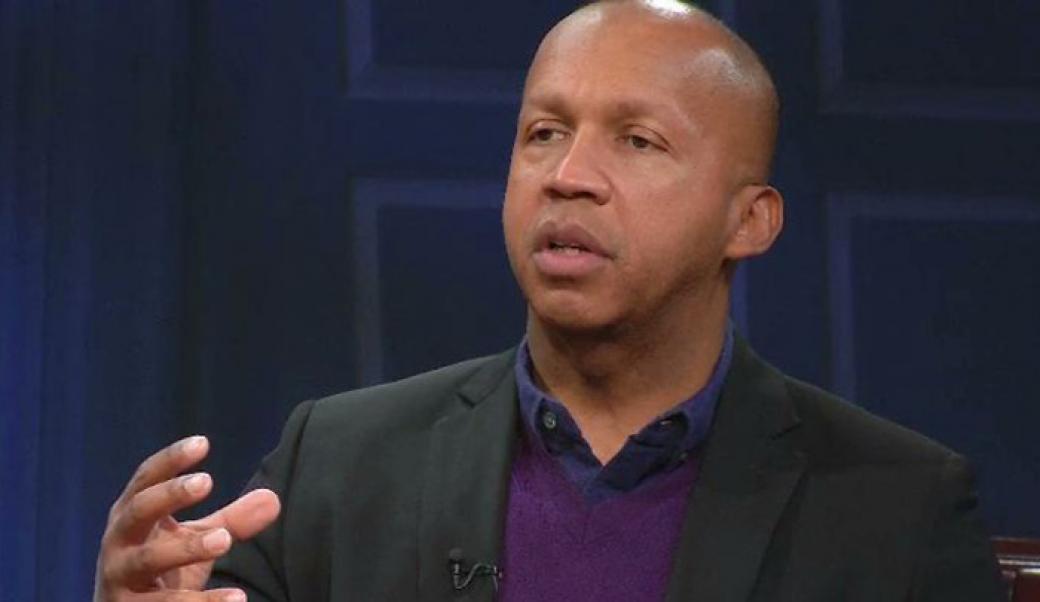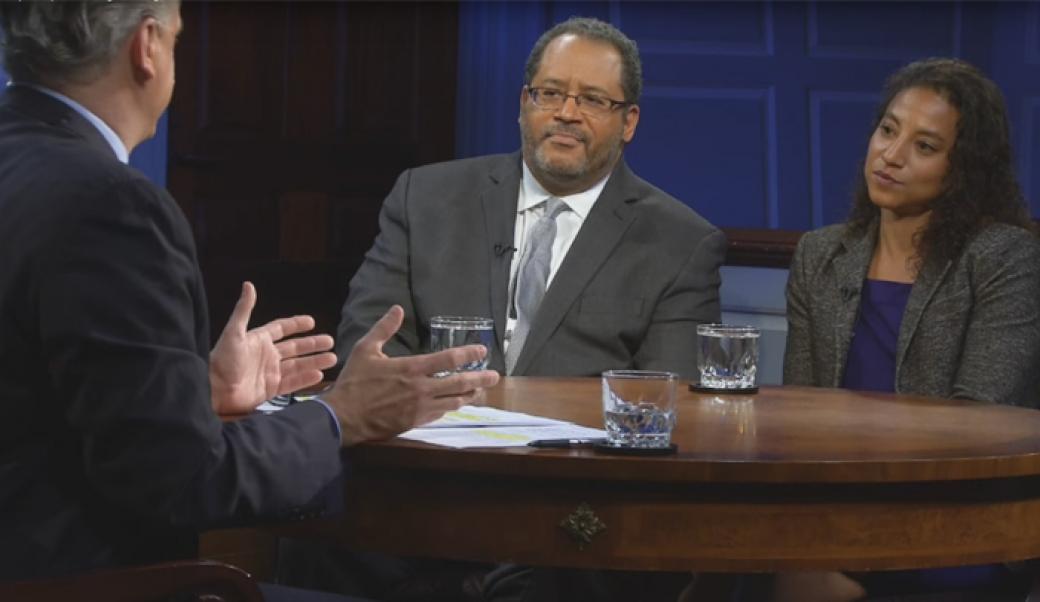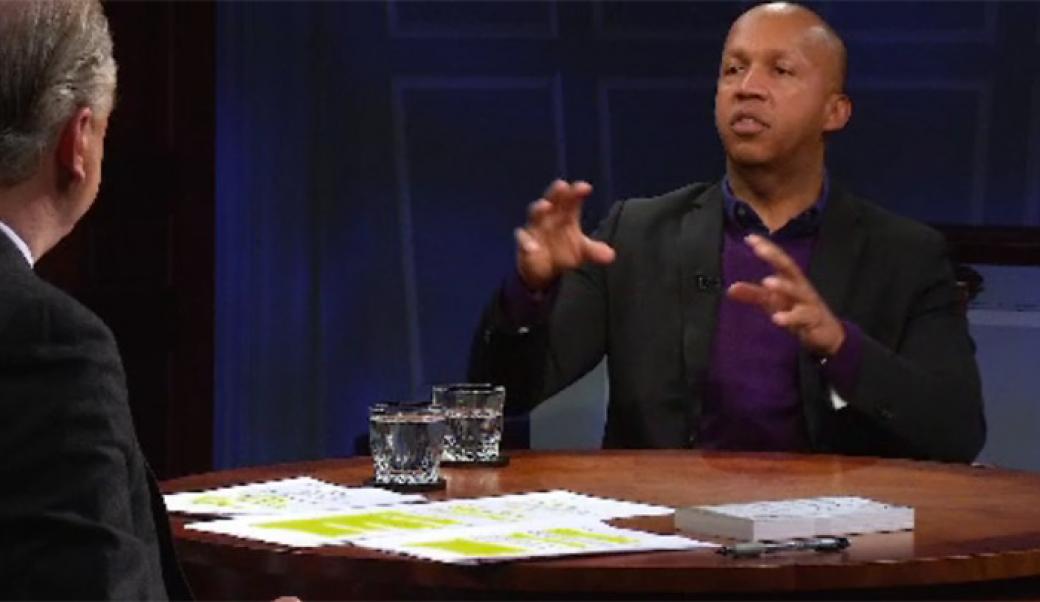About this episode
July 08, 2016
Joy-Ann Reid
Joy-Ann Reid, a national correspondent for MSNBC, host of the network's "AMJoy," looks at Barack Obama, the Clintons, and America's racial divide. In her latest book, "Fracture," Ms. Reid traces the Democratic Party back to the early 1960s to demonstrate the role of race in major party decisions and to explain why the issue is so important to understanding American politics today.
Race and Racism
Black voters and the presidency
Transcript
0:41 Douglas Blackmon: Welcome back. I’m Doug Blackmon. America has undergone an astonishing evolution over the past 50 years. It has transformed from a country where, in 1960, white voters overwhelmingly determined the outcome of national elections. Aa large percentage of those African-Americans who could vote identified themselves as Republicans, and minorities were largely irrelevant to national politics. Today, the U.S. is a country where a candidate can win the presidency with the support of less than 40% of white voters. That transformation is arguably the most significant and historic dimension of American politics in the last century. It may also determine who our next president will be and how, or if, the U.S. will deal with growing racial division and civil turmoil over the past two years.
FACTOID: The Question: What’s the future of Black voting after Obama?
Joining us to discuss that dramatic change, and where we may be headed as a country, is Joy-Ann Reid, a national correspondent for MSNBC, formerly editor of “theGrio.com,” an online news and opinion website oriented to African-Americans, and in 2008 worked for the Barack Obama presidential campaign. She’s just published a new book examining the place of black voters in American political life in the past and in the present. It’s titled: FRACTURE: Barack Obama, the Clintons, and the Racial Divide. Thanks for joining us.
Joy-Ann Reid: Thanks you for having me Doug. It’s good to be here.
2:00 Blackmon: During the 2008 presidential campaign, uh, Michelle Obama controversially said that she was finally proud of her country. But as the Obama presidency comes to an end, what’s the predominant view as far as you would measure it among African Americans? Is it one that at the end of this presidency is there a sense of pride over this achievement, a greater sense of security about a place in America? Or is it a sense of disappointment, or unfulfilled promise?
Reid: Well I think it’s a mix of both. I think that you have tremendous pride in the election of Barack Obama, the person of Barack Obama. I think there’s a lot of pride and protectiveness over the Obamas as a couple and over the Obama presidency. At the same time I think that African Americans have watched what’s happened with Obama in the White House to the overall vibe of sort of what happens with race in America, and some of it was expected to become dark, to become negative, and some of it I think has been kind of shocking, and I think the increasing violent tone of the vituperativeness toward the Obamas was something that I think African Americans expected to happen but to dissipate. The fact that it has intensified I think has been shocking to a lot of black folk, and then I think also within the Obama presidency there was an expectation that we’d have a more extended and in depth dialogue on racial matters that I think hasn’t happened until about the last probably 12 months in the President’s tenure.
FACTOID: African American voter turnout around 65 percent for last two elections
FACTOID: June 2015, 91 percent of blacks approve Obama presidency vs. 50 percent overall
3:30 Blackmon: Is that something that you think that President Obama himself really wanted to have? My sense, I really have to say, is that there were lots of people around him who anticipated that and wanted that, but the president being a very politically calculating individual, probably realized from very early on as he did during the campaign that there might not be an opportunity for that.
Reid: I think the President came into office really looking to focus on just being president with race being an incidental – important but incidental – factor in his presidency. And I think the people around the President also wanted to sort of sublimate race to the other important issues of the day, namely the economy, which was their big concern coming in and healthcare. And I think this was a president that wanted to have great achievements as president that were not weighted down by the idea that these were achievements by a black president. I think he wanted to be a president who was black which is a very different thing.
4:20 Blackmon: So in the end he becomes a president who somewhat ironically, surprisingly, the rising tide lifts all boats was as much the philosophy of the Obama presidency as related to poor African Americans as it was to the Reagan administration.
Reid: Absolutely, and I think that that rising tide discussion, it’s not something that president Obama sort of was holding onto for political calculation. I think that’s what he actually thinks, and I think that he believed that there was no purpose to doing specifically targeted programs related to African American suffering or to speak specifically to the African American community when it was his responsibility I think in his view to speak to the whole country that deeply disappointed a lot of African Americans who said, wait a minute you know as the first black man to embody that office you're speaking from the highest political pulpit in the land, and the African American community gets mostly rebuked from the White House in terms of lectures about being better fathers, being better parents but not really the targeted kind of not only affection from the White House but also an explication of black pain that could be done from no better and no higher office than his.
5:27 Blackmon: Was he, in a quantitative way, was he a good president for black people?
Reid: Well I think you know it’s difficult. If you think about the best years of the economy of United States for the country overall, the Clinton years, African-American unemployment was, what, was at 9.4 percent which was considered catastrophic level of unemployment for white American. When white unemployment peaked at 9.6 percent that was a national catastrophe. And black unemployment is at 9.6 percent now and that is considered a low. Um, at its best the country has done very poorly by African American workers and not being able to produce what is full employment for other people. So if you look at it just by the numbers, yes unemployment has gone down starkly from a high of about 16 percent down to 9.6. That’s better but it's certainly not good. If you look at black household wealth it has not improved under this president, you know, giving him of the fact that he did come in with a tremendous deficit – 750,000 some odd jobs being lost a month, so things are better than they were then but are they better as a whole? On raw measures for African Americans, yes and no - healthcare reform has helped African Americans because they’re disproportionately uninsured. Some of the educational reforms have helped African Americans but has there been a wholesale shift in a great lifting of the African-American family? In terms of economic raw numbers not necessarily.
FACTOID: Average black household wealth less than 1/10th of white families
6:48 Blackmon: And how much do you accept the logic that the, that this very negative response to President Obama from many quarters of American society and from a lot of people in the opposing political party, to what degree do you, do you align with the idea that that the bottom-line that's just about race, it’s just about being unhappy that there's a black man in the president that's fundamentally what all that has been about, what much of the tea party’s energy was about; do you buy that argument?
Reid: I think it’s a little bit of both. I think there is a tissue rejection of the idea of a Democrat being in the White House, quite frankly. There’s a part of the country that just has a right to rule mentality when it comes to the White House so that any Democrat that comes in is gonna face unyielding and really sometimes absurd opposition, right. When you have a country that was formulated on the basis of racial advantage, of saying that free white men had a certain kind of citizenship and everyone else had a different kind of citizenship, and that's foundational to the way to country was created, when you elected a black man, when you elect somebody associated with the once enslaved population of your country, you're going to get a racial reaction. I think some of the reaction to Barack Obama was a rejection of that family being in that house, and a sense that they didn't deserve to be there, that they couldn't have gotten there but for some kind of fraud.
8:05 Blackmon: So how do we square that though, then, that uh with that, in the last presidential campaign, we had an African American man who was leading the GOP back at one point early on, what everyone thinks of Herman Cain.
Reid: 999
8:21 Blackmon: 999…He was there, he had the poll numbers, and now we have another African American conservative very high in this very scattered Republican field. That does that does seem to at least to some degree belie the idea that race alone as an identifiable thing, that the opposition to the current administration is fundamentally purely reacting to the color of skin of an individual.
Reid: Well I think that's very interesting and when you look at the conservative movement and the Republican Party there's always been a gravitation toward having people of color be symbolic in that in that part of the of the culture, of having an ideological soulmate who is black or who is Indian American like a Nikki Haley or who is Hispanic like a Marco Rubio. That’s a very desirable thing on the right, in part because the Republican Party has become a very white party. It’s an overwhelmingly white party. There is a desire to put forward candidates and individuals of color. The tea party movement was pushing forward people of color to say, I think not so much to black and brown people, but to say to white suburbanites, quite frankly, that were uncomfortable with the idea of being in a white party, no we are not a white party. But what candidates of color on the right do and say is very different from what candidates of color can do and say when they are Democrats. On the right what is desirable is to have a black body or brown body but the ideology be very bleached, be very bleached of the discussion of race, avoiding the topic of race or really rejecting the idea of racial difference. And that's what candidates like Ben Carson are able to do.
FACTOID: See millercenter.org for other episodes in “What Now?” series
9:56 Blackmon: Is that a characterization of them as, in old fashioned terms, are they Uncle Tom candidates?
Reid: Well I mean that is the sort of pejorative when you talk to black Republicans, that they feel Uncle Tomized by that characterization. But it’s just a fact that the way that you rise on the right is that you do talk, like Tim Scott does, not about race but about the equality of opportunity, not of outcome. You use the same language as conservative white candidates and that is how you're able to win. What it doesn't help you do is to gain more traction among black voters. Tim Scott gets less than 10 percent of the black vote just like a white candidate who’d run in his place.
10:32 Blackmon: In terms of social values, it’s still the case that African Americans are far more religiously active than the great majority of whites today. African Americans generally are still, have narrower views on opposition to abortion, opposition to gay marriage, and those issues which are red meat issues to a lot of white conservative evangelicals. But there has never been a capacity for conservatives to capitalize on those on those shared views with African Americans. Could that change?
Reid: Yeah, I think absent shifts in raw policy and also I think in the tone of the party the way the party sounds to African Americans, I would say it's gonna be very difficult. The values argument doesn’t work with African Americans voters because African American voters they are extremely pragmatic. They are policy voters. They vote strictly for policies that have impact in their communities. They vote on economic policy, healthcare, education, who is going to do social policy that uplifts my community, and that's the Democrats.
11:31 Blackmon: The great American writer, Toni Morrison, who also happens to be black, is credited to calling Bill Clinton the “First Black President” and coining the phrase that became very widely used and embraced by the Clinton’s themselves. First, was that an accurate assessment of Bill Clinton?
Reid: The big irony of course with Clinton was because it was a golden age in the economy for the black community. But in a lot of ways he was tearing apart, his policing policies were terrible for the black community. Unleashing 100,000 strong force of police into urban communities, really to make suburban communities to feel better about the crack epidemic which wasn’t really on their shores. But this constant fear that the black crack epidemic was going to wash into the suburbs. And that policy combined with welfare reform, which cut the poorest Americans, the most indigent all from hell, these things were actually devastating to the black community and were protested against by a lot of the Civil Rights community.
FACTOID: Clinton’s 1996 welfare reform stressed jobs over paymentshttp://www.brookings.edu/research/interviews/2006/08/24welfare-haskins
12:30 Blackmon: At the time there were also a lot African Americans who supported those things, because they did have an existential threat from what was happening in the inner city.
Reid: Absolutely. So you have this strange kind of duality, with this desire to get the help and have more police on the street, but the way it was implemented just felt so random, and targeted, and it didn’t feel, it didn’t feel like help once it got there.
12:52 Blackmon: So we go into the 2008 campaign, Barack Obama has this surprising start to his candidacy. But Hillary Clinton, based on this history in which you described, seems to have a complete lock on the leadership class of African Americans across the county. How was it, I take it that you were in this picture to some degree, But very quickly, how is it, then, that this, this astonishing political reversal occurs in which African Americans abandon Hillary Clinton almost entirely?
Reid: Yeah absolutely. And it was astonishing, because going into the 2008 primary, African Americans were solidly with Hillary. More than two to one with Hillary. They didn’t know this Barack Obama, he didn’t come up through the Civil Rights Movements. And you have to remember that the black electorate had a long history of rejecting fantasy candidacies. Candidacies that might feel good, but have no practical impact. There was a total rejection of Shirley Chisholm. Jesse Jackson had huge support among African Americans in the primary, but it wasn’t as if he won the nomination, right? So Barack Obama comes along in a very skeptical black milieu where people are saying A, he can’t win. B, his name is Barack Hussein Obama, we are currently fighting Saddam Hussein and Osama Bin Laden. There is no way that someone with that name, with that background can win. Then he comes along and wins Iowa, one of the whitest states in the country. And that proves to African Americans that he has legs outside of our community. He’s not just a candidate candidacy to us, he actually can win. And once that happened, there was just a wholesale rush to Obamas side, and the Clintons were taken aback by that. As taken aback by the fact that he ran. Hillary Clinton was not expecting this candidacy to happen. And when it started to be successful, I think panic set in, in the Clinton campaign
14:31 Blackmon: A quick anecdote. Just after the most controversial events associated with Clinton. I was sitting doing an interview with Jimmy Carter. I was down in Plains talking to Jimmy Carter, and his phone rings and he has amazingly little staff around him. (At least he did then). And he answers the phone and its Bill Clinton. Calling to explain what happened, and not to apologize, but explain that what happened had been mischaracterized. And Jimmy Carter gave him some advice, about well you really need to get past this and stop talking about it. It was also very evident from Carter’s body language that he couldn’t stand Bill Clinton in any fashion whatsoever. Um, but he gives him some advice, and then I step out of the room for a minute and listen from the next room! But, in the end is it possible that Bill Clinton’s, the perception that Bill Clinton had said very insensitive things during that primary was a bit overblown, and in fact was encouraged by the Obama campaign, more so than was really deserved?
Reid: First of all, the first things that were said by Hillary Clinton and Bill Clinton in New Hampshire, all on the same day. One of which is the fairy tale comment. That Bill Clinton makes after a long day at a town hall meeting, where someone asks him about Iraq. And about their credibility on Iraq. And he says that Barack Obama’s statements, that: Never, never, never, being for the war, is the biggest fairytale he ever heard. But that gets interpreted that his candidacy is a fairytale. So the African American community hears this, and runs with it. Some of the other candidates comments that were made, Hillary Clinton being a “wonk”, and trying to push back on the idea that Barack Obama was being draped in the mantles of John F. Kennedy, which is something Bill Clinton really, really wanted for himself. He always saw himself as somebody that was in the form, in the mantle of JFK. And also being draped by the mantle of Martin Luther King, by a lot of African Americans, in their minds and souls, he was going to be the next secular saint after King. And this really bothered the Clintons. Because Bill Clinton felt he had a currency with African Americans, and they didn’t like it. So a lot of things they said, I don’t really think were meant to be racially insensitive. I think they were just insensitive to the moment. That African Americans had gone from a pragmatic distance from Obama, to love for Obama. To the idea that his could be real, we could actually have a real black president. And any statements to undermine him. That he’s just trying to be King. That he is a dreamer and not the president, just felt, uh, it felt like they were dismissing and disdaining Obama. And I think they were. So I don’t think it was racial animus, it was panic.
17:09 Blackmon: And you describe the moment after the South Carolina primary when the Obama team realizes that to some degree, they don’t need black voters anymore. Because they got 'em. They don’t need Jesse Jackson to bring them in, but they’re gonna get 90 percent plus of black voters and they know that. And there then begins to be, uh, what one might calls, to reverse a phrase you used in the book, but a “deracializing” of Obama begins. And that triggers something of an uprising within the campaign staff among African American staffers.
Reid: Once he was the nominee, their thought was: How do we get more working class white voters to vote for us frankly. To vote for this black man with this funny name. How do we do that? And they weren’t really focused on black voters anymore. And you have black staffers saying: Wait a minute, you still have to make sure that that 60year old black grandmother, believes that this is possible enough that she should line up and vote! That she doesn’t think: Wow, we did a great thing and got him the nomination, but he’s gonna lose. And it’s not worth my time. And they wanted also the African American community to feel a part of the moment. And to feel beloved, quite frankly. And that wasn’t happening. Um, and I think how that’s carried over in the administration, is that the deracializing of Obama really continued into the administration. And caused great disappointment, when a lot of African Americans said: What a minute, this isn’t an individual black man’s achievement, this is supposed to be an American moment. And a moment that we are supposed to have some part in. And I think that that feeling, I think, has washed through the administration. Right up until again, the President, uh, I think in Charleston and I think in Selma really changed that view in a fundamental way.
18:39 Blackmon: I wrote a story for the Wall Street Journal at the hundred days administration where I talked to a large number of black leaders from around the country, including Janet Langhart Cohen, probably a mutual friend of ours, about their perception already. You know, the discussions that were going on that ‘hey, he’s not talking about race, he’s really not talking about things that would specifically benefit African Americans.” But almost to a person, expect to the designated critics to the president, but almost everyone else their response was, “We’ve just got to go along with this, it’ll eventually work out for us, he’s a historic president whether he does anything for African Americans.”
Reid: The message that was being communicated was, “look at the bigger picture. This is an historic opportunity, get on board.” Once the president gets into office, one of the really, another great irony is the kind of disempowerment of the Congressional Black Caucus, which is bigger than it’s ever been before, but can’t get an audience with the guy, right. They’re not able to get into the Oval Office to put their policies forward, and when they do finally get in, they find a president who’s really not interested in their main proposition which is: the black community is at catastrophic levels of unemployment. 16 percent unemployment. Unemployment that if this were white unemployment, would be a national emergency, and you’re not doing anything about it. You’re not doing targeted programs for it. We need to this, this, and that, and these are what we want, and the White House was saying, “no, we’re doing rising tide, that’s what we’re doing.” And this rejection shocked a lot of members of CBC. So, I think they were caught in this weird vortex where they felt frustrated, but they felt the African American community would turn on them if they said anything, and they probably would have.
20:10 Blackmon: And so, a figure like Janet Langhart Cohen, the wife of former Maine senator Bob Cohen, one of the most high powered mixed race couples in America probably, and she was sort of doyenne of Washington social and political scenes, but you quote her at length at the end of the book where she is saying a very different thing from what she said to me six years earlier. She’s no longer saying, “yes, we should be satisfied with just the symbolic victory here.”
Reid: Yea, your absolutely right, and the late Ron Walters, I think, was the leading edge of that vein of criticism, of saying it’s not enough to just have someone who looks like us in the White House, if he’s not going to do anything to try save our communities not just help our communities or give a special nod to our communities, but save a lot of our lives. People are dying for want of bread, right. They’re dying for want of a job, for want of opportunity, for education that’s falling apart in communities where, quite frankly, white Americans have abandoned the public schools and just don’t care about them anymore won’t fund them. So you have Janet Langhart Cohen, who I do quote at length in the book, who writes this beautifully eloquent description of the pain of African Americans who were waiting for a black president, and felt they just got a president whose job one seemed to be to put aside black people.
FACTOID: Private segregation academies flourished in 1960s and 1970s
21:27 Blackmon: But so, at the very moment that the first black president is leaving the scene, we seem to actually be in some version of a very substantive discussion on race for the first time in a long time.
Reid: Well I mean, I would argue that the event that really kicked off the discussion, even though it didn’t involve a police officer, was Trayvon Martin. The death of Travon Martin that galvanized, particularly young African Americans, to say, “wait a minute, somebody my age, a teenager, a young man like me, is just coming home from the store and gets gunned down and the guy doesn’t even get arrested?” Are we at that point that black life is so meaningless and so valueless that you can just kill a kid and you won’t even get arrested? And I think, that was actually the galvanizing event that kicked off the Black Lives Matter movement. So we’ve had police brutality that sparked riots that sparked horrendous violence in these cities forever. For hundreds of years there have been police trained on black communities, but there were never any pictures of it. And I think that once you saw Michael Brown’s body, for hours that you could just go on Twitter, I saw it on Twitter. You can just see this person lying in the street like cattle. That did happen. The problem with the Michael Brown narrative is that we really don’t know what happened because only one person gave an account of it and that was the police officer. The reason the justice department couldn’t substantiate anything else is because this police officer essentially investigated himself. He bagged and tagged his own evidence. He bagged and tagged his own gun. He was never interviewed by his fellow officers. He gave no written account of that shooting. You had 20 something different witnesses, 18 of whom said the young man had his hands up, but two disputed it. Well when you had a he said, they said, and you can’t prove any of them are right, you can’t prove the hands up narrative was true because there’s no video of it. All you have is the dead body on the ground oozing blood onto the street like a cow dead in a field. And African Americans saw that complete disrespect for this life as if it wasn’t important. His parents, his family, were trying to run to their boy and weren’t allowed to—were treated like criminals. You had police officers who were more concerned with the potential violence of the crowd than with the dead boy on the street. So I think that African Americans don’t need the Justice Department to say that the hands up narrative is provable to believe it because none of the stories that black people tell about violence against them unless the person is perfect, is pristine, has never shop-lifted, has never said a cross word, didn’t ever cuss on his cell phone like Trayvon Martin did. Unless you are an angel, you are bringing about your own death and deserve to die. And the swiftness with which, in the polling, white American believed the police narrative, believed the Zimmerman narrative and all that we found out about Zimmerman afterwards, I think a lot of people are shocked that they took his side, but the swiftness with which the larger body disbelieves the dead black boy, I think, just reinforces to African Americans that black lives don’t matter. That’s why the movement is called black lives matter, because what’s implied at the end of that is “too.” Black lives matter, too. That this is a human. That you don’t leave them laying there and you investigate with more vigor than just letting the police officer go back to the police department and bag his evidence and go home.
24:37 Blackmon: Well, that’s very powerful. So now we’re heading in this campaign, into the real meat of this campaign and we have Hillary Clinton trying to re-appropriate what was once this, what the Clintons viewed as, this inheritance of black support, what are the prospects that Hillary Clinton can reattach to that tradition?
Reid: What the Clintons are hanging onto is the fact that, good or bad, they are the devil you know. Black people know them. They feel they know them, and they feel that she can win. And I think that for now at least, she still retains the advantage because I think that most black and brown voters want a democrat to be in the White House in 2016, and right now she’s looked at as the most plausible
Blackmon: Thank you for being here.
Reid: Thank You
Blackmon: Joy-Ann Reid, the book is Fracture: Barrack Obama, the Clintons, and the Racial Divide. We invite you to join the conversation of American Forum and our guests on Twitter or Facebook. For transcripts and podcasts, visit us at millercenter.org/americanforum where this program is available 24 hours a day. I’m Doug Blackmon. See you next week.
